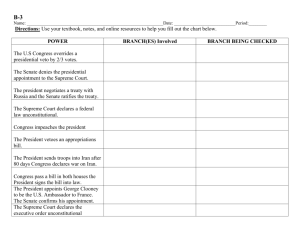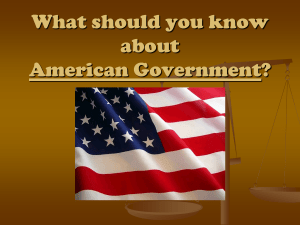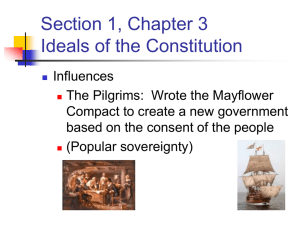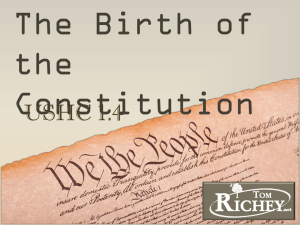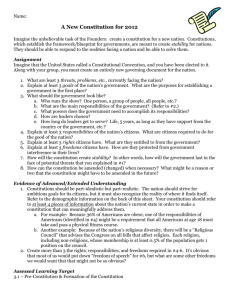File
advertisement
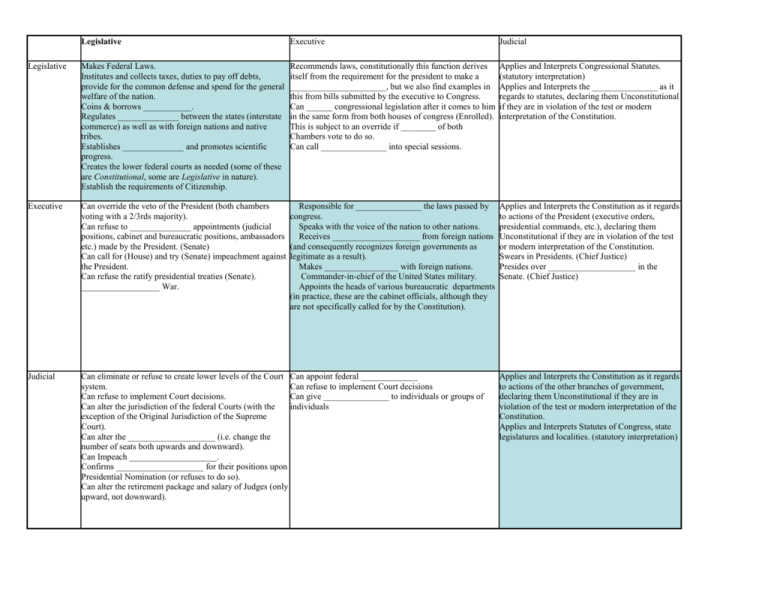
Legislative Executive Judicial Legislative Makes Federal Laws. Institutes and collects taxes, duties to pay off debts, provide for the common defense and spend for the general welfare of the nation. Coins & borrows ___________. Regulates ______________ between the states (interstate commerce) as well as with foreign nations and native tribes. Establishes ______________ and promotes scientific progress. Creates the lower federal courts as needed (some of these are Constitutional, some are Legislative in nature). Establish the requirements of Citizenship. Recommends laws, constitutionally this function derives itself from the requirement for the president to make a ______________________, but we also find examples in this from bills submitted by the executive to Congress. Can ______ congressional legislation after it comes to him in the same form from both houses of congress (Enrolled). This is subject to an override if ________ of both Chambers vote to do so. Can call _______________ into special sessions. Applies and Interprets Congressional Statutes. (statutory interpretation) Applies and Interprets the _______________ as it regards to statutes, declaring them Unconstitutional if they are in violation of the test or modern interpretation of the Constitution. Executive Can override the veto of the President (both chambers Responsible for _______________ the laws passed by voting with a 2/3rds majority). congress. Can refuse to ______________ appointments (judicial Speaks with the voice of the nation to other nations. positions, cabinet and bureaucratic positions, ambassadors Receives ____________________ from foreign nations etc.) made by the President. (Senate) (and consequently recognizes foreign governments as Can call for (House) and try (Senate) impeachment against legitimate as a result). the President. Makes _________________ with foreign nations. Can refuse the ratify presidential treaties (Senate). Commander-in-chief of the United States military. __________________ War. Appoints the heads of various bureaucratic departments (in practice, these are the cabinet officials, although they are not specifically called for by the Constitution). Applies and Interprets the Constitution as it regards to actions of the President (executive orders, presidential commands, etc.), declaring them Unconstitutional if they are in violation of the test or modern interpretation of the Constitution. Swears in Presidents. (Chief Justice) Presides over ____________________ in the Senate. (Chief Justice) Judicial Can eliminate or refuse to create lower levels of the Court Can appoint federal _____________ system. Can refuse to implement Court decisions Can refuse to implement Court decisions. Can give _______________ to individuals or groups of Can alter the jurisdiction of the federal Courts (with the individuals exception of the Original Jurisdiction of the Supreme Court). Can alter the ____________________ (i.e. change the number of seats both upwards and downward). Can Impeach ____________________. Confirms ____________________ for their positions upon Presidential Nomination (or refuses to do so). Can alter the retirement package and salary of Judges (only upward, not downward). Applies and Interprets the Constitution as it regards to actions of the other branches of government, declaring them Unconstitutional if they are in violation of the test or modern interpretation of the Constitution. Applies and Interprets Statutes of Congress, state legislatures and localities. (statutory interpretation)

